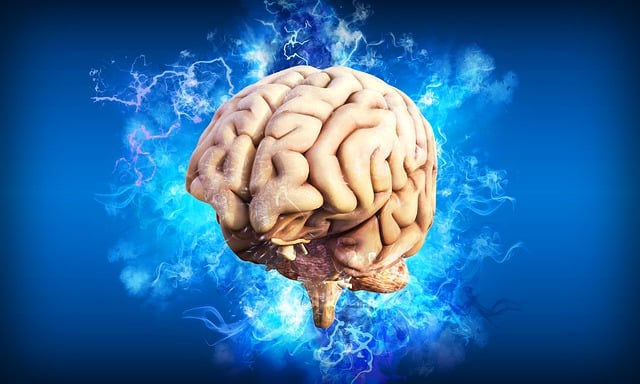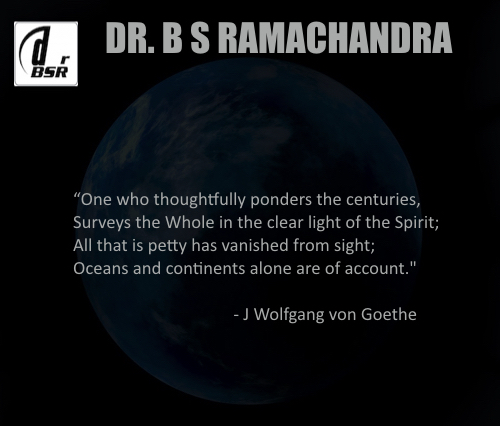What is Learning?

Learning is to cognition what evolution is to life. Learning is a neuro-cognitive potential that organizes itself spontaneously once the right conditions are met. This statement contains implicit several deep facts. First of all, learning is a potential, that is to say, it is like an instinct already present in the organism and ready to unfold itself given favourable environmental conditions. It is also a neuro-cognitive potential in the sense that it involves the brain and nervous system and the corresponding mental apparatus, mind and intelligence. It organizes itself spontaneously in the sense that it is follows the law of complexity of spontaneous self-organization. And being subject to complexity implies that the brain-mind is a complex adaptive system. Taken together, these observations lead us to come up with a rather long description of the brain-mind as a complex adaptive, active processing, bio-physiological, and psychological, neuro-cognitive system. Small wonder then, if learning is often treated in so ill-understood a manner by most educational systems. It follows, therefore, that formal education often inhibits learning by subjecting it to and surrounding it with a subversive environment. There is great need, then, to understand and appreciate the varied dimensions associated with learning as a process in order to liberate it from the conventional moorings and restore it to its rightful place as intended by nature in her nurture.
Leonardo: Da Vinci, I am quite eager to get to our dialogues so can we begin with the question, "what is learning?"
Da Vinci: Sure, Leonardo, I think that is a good way to begin. So, learning is what I call a neuro-cognitive potential.
Leonardo: A neuro-cognitive potential? What do the neuro and cognitive in it signify?
Da Vinci: Neuro signifies the brain and cognitive the mind. Learning is intimately associated with both the brain and the mind. it depends on the nervous system governed by the brain and it depends on consciousness and intelligence that are emergent factors of the mind. Of course, I am talking in the particular context of learning in the humans. Otherwise, the term neuro would suffice though I am not so sure of that either as no one knows at which level of evolution the mind actually arises. Mind could, in fact be implicit in lower organisms and escape detection as we don't have have a way of distinguishing the action of the mind even in human beings.
Leonardo: Doesn't cognitive neuroscience encompass the study of the brain and mind? Why do you bring in the term neuro-cognitive then?
Da Vinci: Cognitive neuroscience no doubt encompasses the brain and the mind but it is more of the study of the mind from the point of view of neuroscience. As the neuroscientist Antonio Damasio1 points out, it does not include the study of the emotions. Also, I use the term neuro-cognitive as an umbrella term encompassing cognitive science, neuroscience, the study of the emotions, psychology, complexity theory, systems thinking and philosophy to name a few. So the neuro-cognitive paradigm provides a much broader framework for the phenomenological study of the brain and mind. As Howard Gardner says,
"Relatedly, discussion of education has often been restricted to the cognitive realm, even to specific disciplines. My own scholarly and applied work has often been viewed as being restricted in this way. Yet I see education as a far broader endeavour, involving motivation, emotions, and social and moral practices and values. Unless these facets of the person are incorporated into daily practice, education is likely to be ineffective - or worse, to yield individuals who clash with our notions of humanity."
Leonardo: For intelligence there is the Turing test and the Searle's Chinese Room argument...
Da Vinci: Not conclusive though and not for mind in general.
Leonardo: Yes, I agree, even for intelligence there are limitations in distinguishing it from artificial intelligence.
Da Vinci: So we'll bypass those problems then, and focus on the core issues on learning per se.
Leonardo: So put it in simple terms what learning is.
Da Vinci: Learning is like an instinct that needs only a supportive environment to flourish. It doesn't need teaching to develop it though teaching can be one of its aids.
Leoanrdo: Why do you say learning is like an instinct? Why not an instinct?
Da Vinci: Because, it doesn't develop as spontaneously as an instinct. For example, you could call language an instinct as Steven Pinker says because language develops quite spontaneously when the individual is surrounded by an environment in which that corresponding language is spoken. But learning doesn't happen just like that. Nevertheless, learning has much of the characteristics of an instinct. That is why I call it a potential.
Leonardo: I get it, learning is a potential in the sense that it is implicit in the nervous system of the organism.
Da Vinci: Yes, as a neuro-cognitive potential to be precise.
Leonardo: What is the role of the environment then?
Da Vinci: The environment provides the stimulus for the learning to take place. The learner absorbs the learning by watching other learners.
Leonardo: What is the role of teaching then?
Da Vinci: Ha...ha...ha...teaching? Well...it is one of the greatest inhibitors of learning.
Leonardo: Inhibitors?
Da Vinci: Yes, teaching inhibits learning by interfering in its natural instinctive process. Even when best done it slows down the learning process.
Leonardo: That would seem to be an unusually bold statement, isn't it?
Da Vinci: Of course, when seen from the point of view of the teacher or institution. For, teaching is done most often for the sake of the teacher or the institution and rarely, ever, from the point of view of the learner.
Leonardo: It would be good to elaborate this a little.
Da Vinci: Now teaching is one of the greatest aids to learning!
Leonardo: You are contradicting yourself!
Da Vinci: Let me explain. Teaching is one of the greatest aids to learning. There is no doubt about that. But what I mean by this is certainly not that a teacher aids the learner. It is that teaching when done by the learner for oneself, is one of the greatest aids to learning. Teaching when imparted by a teacher to a learner, most often, inhibits learning. Teaching is one of the most powerful forms of self-expression and so organizes learning for the learner. When directed towards another learner. However, it inhibits learning in that learner though it enhances learning for the teacher.
Leonardo: Ah, that's explains it a lot.
Da Vinci: So, a teacher may enjoy teaching because it helps the teacher to learn the subject matter more thoroughly and powerfully. Nevertheless, the conscientious teacher can perceive that even the best teaching need not necessarily make for more effective learning in the learner. And there is one way in which the teacher can, indirectly make learning happen effectively in the learner.
Leonardo: In what way?
Da Vinci: The teacher can serve as an example to the learner. In that case, the more effectively the teacher learns, the learner, by watching the teacher or by being in the presence of the teacher or by being in the environment of the teacher, can use that example as a powerful means to learn. Here, the learner learns by imitation or unconsciously modelling the teacher. This is the brain's most powerful way of learning.
Leonardo: Teaching by example or influence and not by instruction?
Da Vinci: Yes, teaching by instruction inhibits learning. Teaching by example and influence enhances learning. One becomes what one sees the teacher to be not by being told by the teacher what to do or be.
Leonardo: This accounts for the failure of even moral and ethical instruction.
Da Vinci: No doubt, the learner becomes what he perceives the teacher to be and so if the teacher has shortcomings the learner absorbs that also. Therefore, when the teacher is one with a weak moral and ethical character and attempts to teach morality and ethics, the learner absorbs the teacher's weaknesses and not what the teacher instructs.
Leonardo: This raises a curious possibility...that by being in the presence of a teacher who is simply teaching but not learning...the learner can become a teacher and not a learner...
Da Vinci: That's well said. The learner by watching a teacher teaching, can become another teacher and not a learner unless of course, the teacher is also learning in the process.
Why Learning? Why Education? What Thinkers Say
"...In the end, education has to do with fashioning certain kinds of individuals - the kinds of persons I (and others) desire the young of the world to become. I crave human beings who understand the world, who gain sustenence from such understanding, and who want - ardently, perennially - to alter it for the better. Such citizens can only come into existence if students learn to understand the world as it has been portrayed by those who have studied it most carefully and lived in it most thoughtfully; if they become familiar with the range - the summits, the valleys, the straight and meandering paths - of what humans have achieved; and if they learn always to moniter their own lives in terms of human possibilities, including ones that have not been anticipated before."
- Howard Gardner, "The Disciplined Mind."
"The child is endowed with unknown powers, which can guide us to a radiant future. If what we really want is a new world, then education must take as its aim the development of these hidden possibilities...It has been widely shown by recent research, that tiny children are gifted with a psychic nature peculiar to them. And this points out a new path to the educator. it is something out of the ordinary, something hitherto recognized, yet something which vitally concerns mankind. The child's true constructive energy, a dynamic power, has remained unnoticed for thousands of years...From the earliest dawn of man's life on earth, these energies have been repressed and nullified."
"The child has a mind able to absorb knowledge. He has the power to teach himself...there is - so to speak - in every child a painstaking teacher, so skilful that he obtains identical results in all children in all parts of the world. The only language ever speak perfectly is the one they learn in babyhood, when no one can teach them anything!"
"Education is not something which the teacher does, but is a natural process that develops spontaneously in the human being."
- Maria Montessori
"It is quite strange how little effect school—even high school—seems to have had on the lives of creative people. Often one senses that, if anything, school threatened to extinguish the interest and curiosity that the child had discovered outside its walls. How much did schools contribute to the accomplishments of Einstein, or Picasso, or T. S. Eliot? The record is rather grim, especially considering how much effort, how many resources, and how many hopes go into our formal educational system."
- Csikszentmihalyi, Mihaly. Creativity: Flow and the Psychology of Discovery and Invention."
"...the study of emotion has long been ignored by the field of cognitive science, the major scientific enterprise concerned with the nature of the mind today....Cognitive science treats minds like computers and has traditionally beeen more interested in how people and machines solve logical problems or play chess than in why we are sometimes happy and sometimes sad."
- Joseph LeDoux, "The Emotional Brain"
"Teaching and learning are two different phenomena, and should not be confused with each other. Though projected as centres for learning, most schools and colleges are actually institutions for teaching…Nearly all of the current educational system has been designed according to the convenience of teaching, and not of learning."
- Prof. Kirti Trividi
Leonardo: What is the role of teaching then?
Da Vinci: What is the role of a book?
Leonardo: To serve as a source of information first of all and then, to provide guidance...instructions...
Da Vinci: I would say the same with teaching. It is at best a source of information, guidance, instructions.
Leonardo: You are talking about lectures aren't you?
Da Vinci: Isn't most teaching just delivering lectures? Leave aside mentoring that could be a more evocative process that need not at all involve teaching.
Leonardo: Yes, and their role was in delivering information especially when books were scarce.
Da Vinci: Even now, if the teacher has created something new then his lectures have meaning. But otherwise, it is just like a book, though in audio visual mode.
Leonardo: And books are sometimes more efficacious than lectures as one can use the more powerful visual mode to read rapidly through the book while with lectures, one is limited by the speed of the lecturer. That is why, one seeking to be an accelerated learner would do well to move to the visual mode as it is so much superior to the auditory mode when it comes to speed. One would think that videos are of visual mode but though they are, they are limited by the soundtrack and so actually end up dominated by the auditory mode.
Da Vinci: That's right, Leonardo. In that sense, teaching by videos again inhibits learning by slowing down the process to the audio track. As in speed reading wherein the visual mode is employed, it would do well to employ the visual mode for speed or accelerated learning also.
Leonardo: Da Vinci, what then is exponential-accelerated learning? What is exponential in it?
Da Vinci: Leonardo, here's where the emotional brain comes into picture. For, when that is unleashed it makes possible deliberate learning that is actually another name for exponential-accelerated learning. But isn't that the main theme of our entire dialogues? So we'll let it stay for the moment and take it up as we progress in our conversations.
"The trouble with education is that it is a self-fulfilling system. it sets its own objectives and then proceeds towards them. People in education can conceive of thinking only as 'analysis' and 'critical thinking.' This is because the idiom of education is that material is put in front of students, who are asked to react to that material. But the rest of life is not like that."
- Edward de Bono, "I am Right, You are Wrong."


